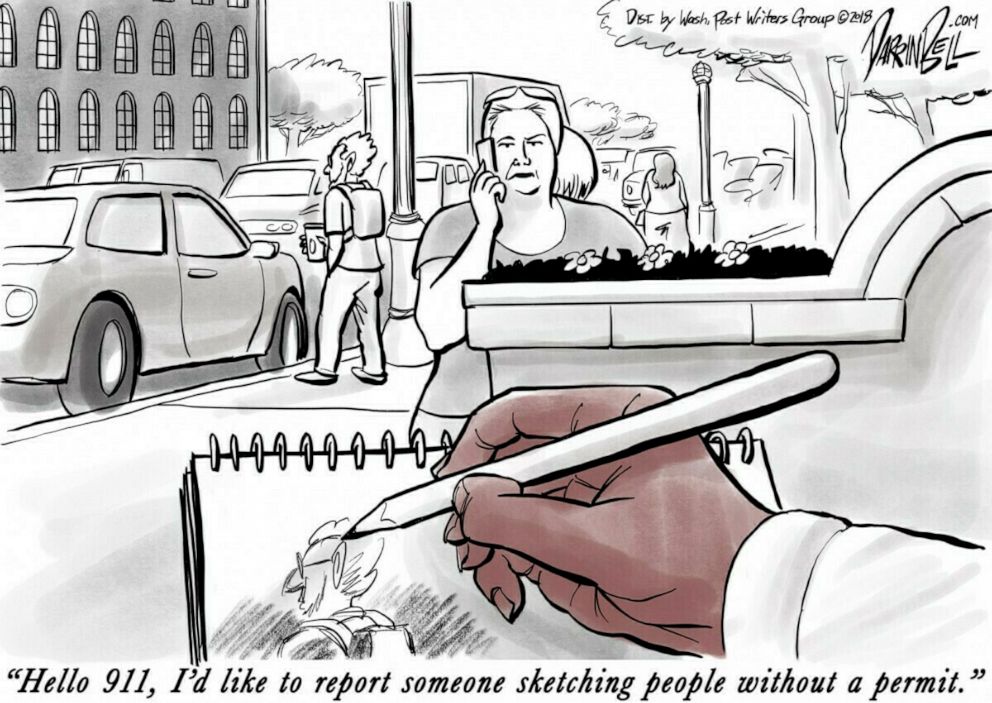He won a Pulitzer Prize for editorial cartoons. Promoting 'human dignity' is his goal.
Darrin Bell is first African American to win a Pulitzer for editorial cartoons.
For the first time in its 100-year history, the Pulitzer Prize was awarded to an African American journalist for excellence in editorial cartooning.
The committee hailed Darrin Bell, 44, for "beautiful and daring editorial cartoons that took on issues affecting disenfranchised communities, calling out lies, hypocrisy and fraud in the political turmoil surrounding the Trump administration."
Bell told ABC News Live on Wednesday that his selection as a 2019 recipient of one of the highest honors in journalism is an important endorsement.
"I want [readers] to take away that we need to be more respectful of human dignity," he said of his work. "That's the common thread I try to weave through every cartoon that I draw -- whether it's about police brutality or immigrants being separated from their children, or whether it's about Donald Trump. It's a big moment of validation."

His work appears regularly in The Washington Post and The New Yorker.
Bell, 44, had retired from editorial cartooning but says he got back into the business in 2012 after being outraged by the acquittal of Florida man George Zimmerman in the controversial killing of 17-year-old Trayvon Martin. He said the charged national conversation about race and criminal justice inspired him.
"I think it's important that people challenge their preconceived notions. 'Why am I so quick to believe this?' That's what I try to remind people of with my work," he said.

The Pulitzer Prize is meant to recognize works "characterized by originality, editorial effectiveness, quality of drawing and pictorial effect." It comes with a $15,000 award.
Bell says the genre is one of the oldest and most lasting forms of journalism.
"People are hard wired to respond to images. It goes all the way back to cave paintings, to hieroglyphics," Bell told ABC News Live. "We've had editorial cartoons for hundreds of years and they're going to be here long after we're gone. I don't think we're a niche art. I think it's the first thing people turn to when they open the newspaper."



